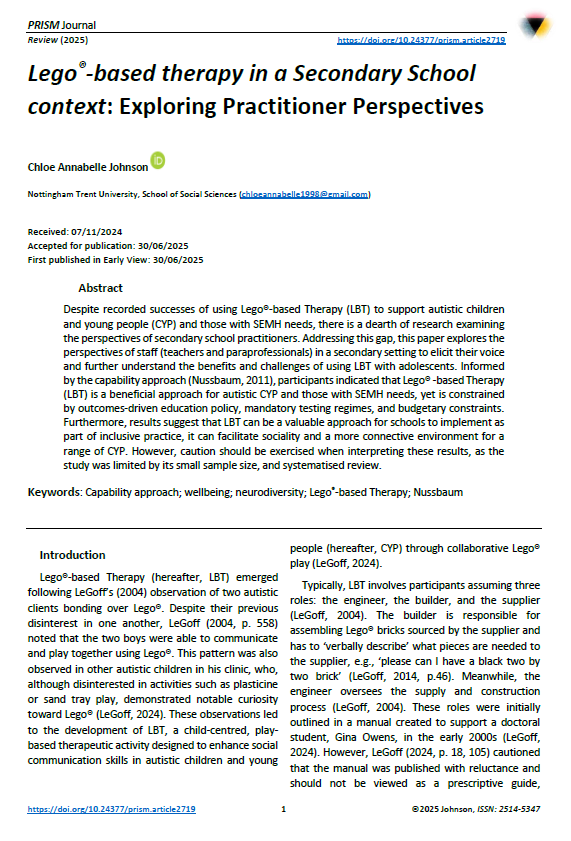Lego®-based therapy in a Secondary School context: Exploring Practitioner Perspectives
DOI:
https://doi.org/10.24377/prism.article2719Keywords:
Capability Approach, Wellbeing, Neurodiversity, Lego-based Therapy, NussbaumAbstract
Despite recorded successes of using Lego®-based Therapy (LBT) to support autistic children and young people (CYP) and those with SEMH needs, there is a dearth of research examining the perspectives of secondary school practitioners. Addressing this gap, this paper explores the perspectives of staff (teachers and paraprofessionals) in a secondary setting to elicit their voice and further understand the benefits and challenges of using LBT with adolescents. Informed by the capability approach (Nussbaum, 2011), participants indicated that Lego® -based Therapy (LBT) is a beneficial approach for autistic CYP and those with SEMH needs, yet is constrained by outcomes-driven education policy, mandatory testing regimes, and budgetary constraints. Furthermore, results suggest that LBT can be a valuable approach for schools to implement as part of inclusive practice, it can facilitate sociality and a more connective environment for a range of CYP. However, caution should be exercised when interpreting these results, as the study was limited by its small sample size, and systematised review.
Downloads

Downloads
Published
Issue
Section
License
Copyright (c) 2025 Chloe Johnson

This work is licensed under a Creative Commons Attribution-NonCommercial-NoDerivatives 4.0 International License.
Authors retain copyright and grant the journal the right of first publication with the work.
The version of the article published as part of this issue is licensed under a Creative Commons Attribution-NonCommercial-NoDerivatives 4.0 International Licence and allows others to read, download, copy, distribute, print, search, link to the full text of the first version of this article, or to use it for any other lawful purpose in accordance with the license. The author maintains copyright for the article published in this journal.
This journal provides immediate open access to its content and has no submission or publication fees.


